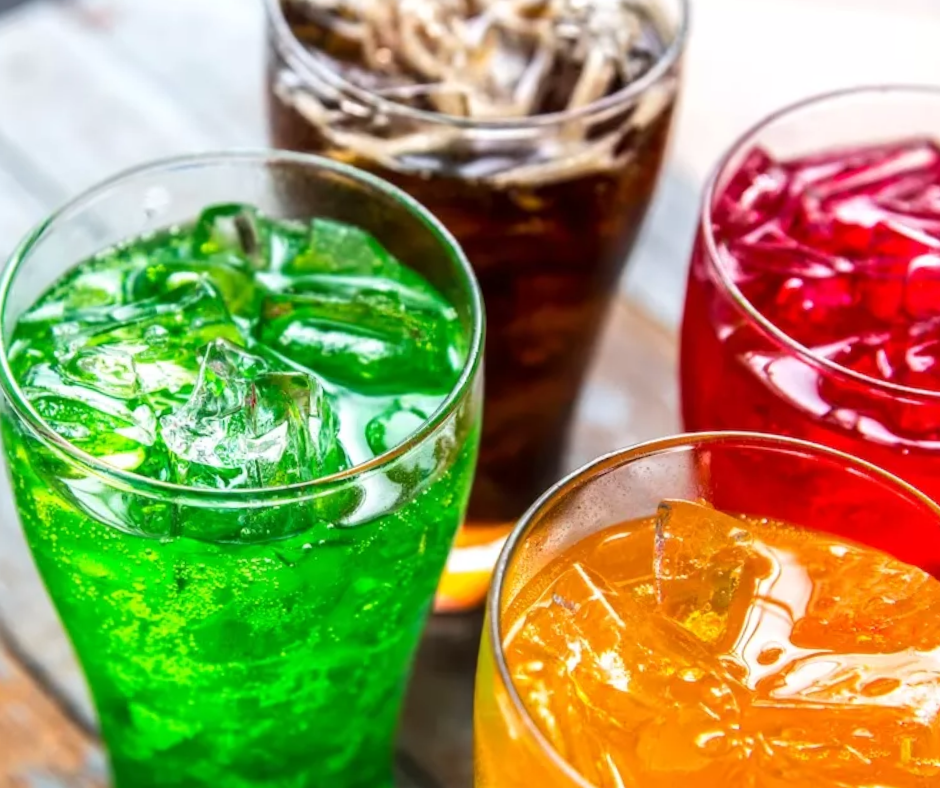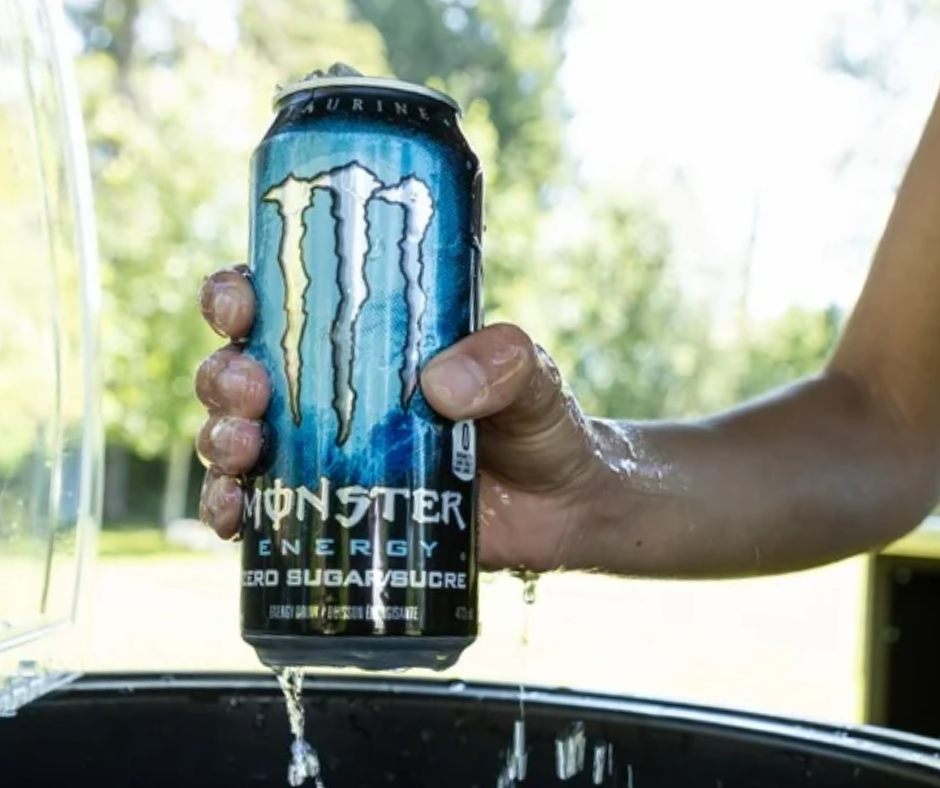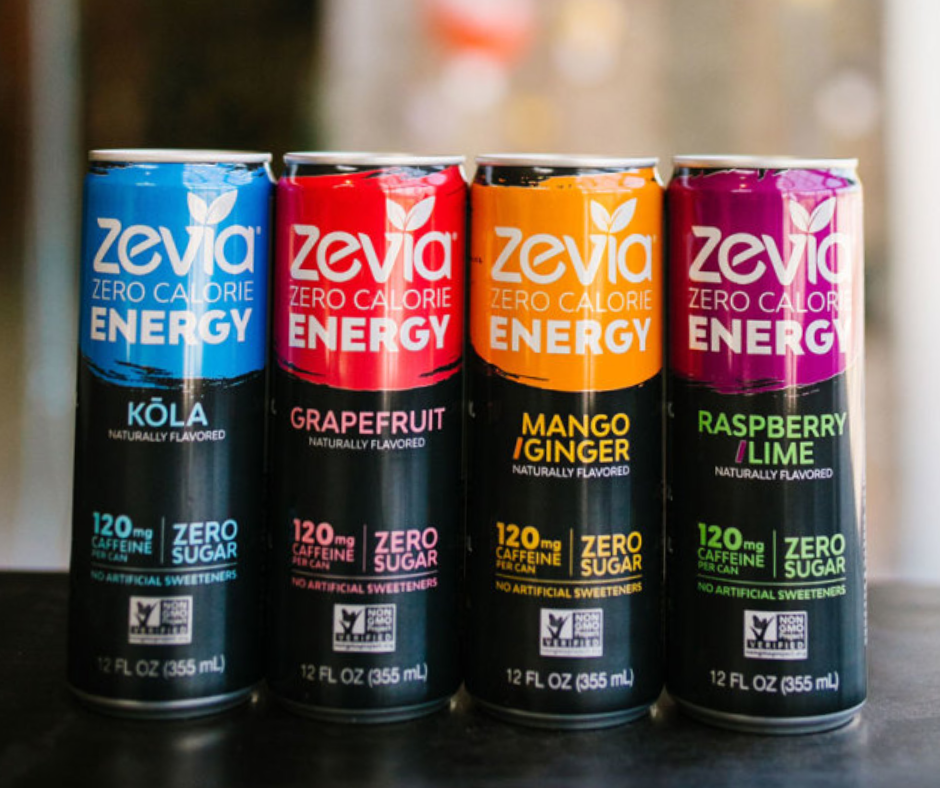Introduction
Energy drinks have gained popularity recently as people seek alternatives to traditional coffee or tea for a quick energy boost. However, these drinks have also raised concerns due to their high sugar, vitamin, and herb content, which may not be necessary for the average person. Zero calorie energy drinks have become more prevalent, but how do they affect one’s body? This continuing education course delves into these questions and explores the potential consequences of overconsumption, labeling issues, and misconceptions about these products’ function and efficacy.
What Are Zero Calorie Energy Drinks?
Zero calorie energy drinks, also known as zero-sugar or diet energy drinks, claim to provide energy without adding calories to one’s diet. These drinks rely on artificial sweeteners, such as aspartame or sucralose, to provide a sweet taste without the added sugar. They also contain caffeine and other stimulants to provide a quick energy boost.
Overview Of Zero calorie Energy Drinks’ Ingredients
Aside from artificial sweeteners and caffeine, zero calorie energy drinks may contain other ingredients such as B vitamins, taurine, and guarana. These ingredients have been shown to provide short-term energy boosts, but their long-term effects on one’s health are still unknown. Moreover, some drinks may contain additives such as preservatives, artificial colors, and flavors that may not benefit the body.
In summary, zero calorie energy drinks are marketed as a healthy alternative to traditional energy drinks due to their calorie-free nature. However, consumers should be aware of the other ingredients in these products and their long-term effects on health. Water is still the best beverage for staying hydrated and healthy, especially with and between meals.
Sugar-free Energy Drinks Vs. Traditional Energy Drinks
The Difference Between Sugar-free And Traditional Energy Drinks
Sugar-free energy drinks are designed to provide an instant energy boost through stimulating ingredients like caffeine and B vitamins without the added sugar content of their counterparts. Traditional energy drinks, on the other hand, typically contain high amounts of sugar, carbohydrates, and calories. This can make them a poor choice for those looking to control their weight or blood sugar levels.
The Potential Effects Of Sugar In Traditional Energy Drinks
The high sugar content in traditional energy drinks can lead to several negative consequences for one’s health. For example, consuming too much sugar can result in weight gain, tooth decay, and insulin resistance, which can eventually lead to diabetes. Traditional energy drinks can also contribute to dehydration due to their high sodium content. This makes them less effective at hydrating the body than water or sports drinks.
In contrast, sugar-free energy drinks offer several benefits over traditional sugary options. They contain no sugar and, therefore, contain much fewer calories and carbohydrates. Additionally, they are typically low in sodium and other electrolytes, making them a healthier choice for overall health and hydration.
In conclusion, while traditional energy drinks can provide a quick energy boost, their high sugar and calorie content can negatively affect one’s health. Sugar-free energy drinks offer a healthier alternative by providing an instant energy boost without the added sugar and calories. However, as with any beverage, moderation is key, and water should always be the primary choice for hydration.
The Controversy Surrounding Artificial Sweeteners
The Use Of Artificial Sweeteners In Zero Calorie Energy Drinks
Artificial sweeteners are used in most zero calorie energy drinks as a substitute for sugar. Some of the commonly used artificial sweeteners include aspartame, saccharin, neotame, and sucralose. These sweeteners are known for their high-intensity sweetness, several hundred times sweeter than sugar. Hence, they are used in small quantities to achieve the desired taste level in energy drinks.
The Debates Surrounding The Safety And Long-term Effects Of Artificial Sweeteners
The safety of artificial sweeteners has always been debated in the scientific community. Some studies suggest that artificial sweeteners might increase the risk of cancer, while others claim that they are safe for consumption in moderate amounts. The Food and Drug Administration (FDA) approves using artificial sweeteners in several food and beverage products, including energy drinks, as long as they are used within the acceptable daily intake (ADI) limits.
The ADI is the maximum amount of an artificial sweetener that a person can consume safely daily without any adverse health effects. The ADI limits for all artificial sweeteners are based on extensive scientific research and studies, and they are regularly reviewed and updated by regulatory agencies to ensure safety.
In conclusion, while using artificial sweeteners in zero calorie energy drinks makes them a healthier choice than traditional sugary energy drinks, the safety of their long-term consumption is still debatable. Consuming any beverage, including sugar-free energy drinks, is always recommended in moderation and within the ADI limits set by regulatory agencies. Ultimately, water remains the best choice for hydration and energy boosts without any added artificial substances.
The Benefits Of Zero Calorie Energy Drinks
The Potential Benefits Of Consuming Zero Calorie Energy Drinks
Zero calorie energy drinks are marketed as low-calorie or zero-calorie alternatives to traditional energy drinks that usually contain high amounts of sugar. While sugar-free energy drinks offer a healthier option for those watching their sugar intake, they also have potential benefits. Here are some of the benefits of zero calorie energy drinks:
- Provide an instant energy boost: Zero-calorie energy drinks are designed to stimulate and provide an instant energy boost through ingredients such as caffeine and B vitamins.
- Increase mental alertness: Caffeine improves cognitive performance, including concentration and mental alertness.
- Improve physical performance: Some studies suggest caffeine can improve physical performance by reducing fatigue and increasing endurance.
- Aid weight loss: Zero calorie energy drinks can help reduce calorie intake and aid weight loss when consumed as part of a healthy diet and regular exercise routine.
A Closer Look At The Ingredients In Zero-calorie Energy Drinks
Zero-calorie energy drinks are typically sweetened with artificial sweeteners such as aspartame, saccharin, neotame, and sucralose, which provide the desired sweetness without adding calories or sugar. They also contain stimulating ingredients such as caffeine and B vitamins, which boost energy.
While the safety of artificial sweeteners is still debated, they are approved by regulatory agencies such as the Food and Drug Administration as safe for consumption within acceptable daily intake limits. However, it is recommended to consume any beverage, including zero calorie energy drinks, in moderation and within the ADI limits.
In conclusion, zero-calorie energy drinks can offer potential benefits such as instant energy boost, improved mental and physical performance, and aid in weight loss as part of a healthy lifestyle. However, it is important to consume any beverage in moderation and be aware of the potential risks associated with artificial sweeteners. Ultimately, water remains the best choice for hydration without any added artificial substances.
Common Myths About Zero-calorie Energy Drinks
Zero calorie energy drinks have become a popular beverage choice for many people looking for a quick energy boost without traditional energy drinks’ added sugar and calories. However, several myths and misconceptions surrounding these drinks need to be debunked to make informed decisions about their consumption.
Debunking Common Myths Surrounding Zero-calorie Energy Drinks
Myth 1: Zero-calorie energy drinks are completely safe.
Reality: While zero calorie energy drinks may be a healthier alternative to traditional energy drinks with high sugar content, they still contain stimulating ingredients such as caffeine and artificial sweeteners. These ingredients can cause negative effects like jitters, anxiety, and disrupted sleeping patterns, especially if consumed in excess.
Myth 2: Zero-calorie energy drinks are only for athletes and fitness enthusiasts.
Reality: Zero-calorie energy drinks are marketed to many consumers, including students and professionals, who must stay alert and focused for long periods. However, they should be consumed in moderation and as part of a healthy diet and lifestyle.
Myth 3: Zero-calorie energy drinks provide long-lasting energy.
Reality: While zero calorie energy drinks may provide an initial energy boost due to the caffeine and B vitamins they contain, this effect is often short-lived. They should not be relied upon as a long-term source of energy.
Separating Fact From Fiction
Zero calorie energy drinks can be a convenient and healthier alternative to traditional energy drinks with high sugar content. However, they should be consumed in moderation and as part of a healthy lifestyle. It is also important to be aware of potential negative side effects like jitters and disrupted sleeping patterns and to avoid consuming excess beverages. As with any consumer product, it is crucial to separate fact from fiction and make informed decisions about consumption.
Potential Drawbacks Of Zero Calorie Energy Drinks
The Potential Drawbacks And Risks Associated With Consuming Zero-calorie Energy Drinks
While zero calorie energy drinks may seem like a healthier alternative to traditional energy drinks, they come with their potential side effects and health risks. Here are some potential drawbacks to be aware of:
Artificial Sweeteners
Zero calorie energy drinks are sweetened with artificial sweeteners like aspartame, sucralose, or stevia. While the FDA has deemed these sweeteners safe for consumption, some studies have linked them to negative health effects like headaches, digestive issues, and even cancer. It’s important to monitor your body’s response to these sweeteners and consume them in moderation.
Caffeine
Most zero calorie energy drinks contain caffeine, which can lead to jitters, anxiety, and disrupted sleeping patterns if consumed in excess. It’s important to limit your overall caffeine intake and monitor your tolerance to it.
Dependency
Zero calorie energy drinks can be habit-forming, leading to a dependency on caffeine and their ingredients. This can negatively affect overall health and well-being, and it’s important to consume them in moderation and as part of a balanced diet and lifestyle.
Safety Precautions To Keep In Mind
If you do choose to consume zero calorie energy drinks, there are some safety precautions to keep in mind:
- Monitor your overall caffeine intake and be aware of your tolerance to it.
- Consume in moderation and as part of a balanced diet and lifestyle.
- Be aware of potential side effects like jitters, anxiety, and disrupted sleeping patterns, and adjust your consumption accordingly.
- Talk to your healthcare provider if you have concerns about consuming zero-calorie energy drinks, especially if you have an underlying health condition.
In conclusion, while zero calorie energy drinks may offer a healthier alternative to traditional energy drinks, it’s important to be aware of potential drawbacks and risks associated with their consumption. With proper precautions and moderation, they can be safely incorporated into a healthy lifestyle.
How Much Is Too Much?
Understanding Recommended Daily Consumption Of Zero Calorie Energy Drinks
Consuming zero calorie energy drinks in moderate amounts can be a part of a healthy lifestyle. However, it’s important to be aware of the recommended daily consumption and the potential risks associated with overconsumption. According to the FDA, an adult’s recommended daily caffeine intake is 400 milligrams. This is equivalent to approximately four cups of coffee or two 16-ounce cans of traditional energy drinks.
The caffeine content can vary regarding zero-calorie energy drinks, but generally, they contain less caffeine than traditional energy drinks. Still, reading labels and monitoring your overall caffeine intake when consuming zero-calorie energy drinks is important.
How To Avoid Overconsumption
To avoid overconsumption of zero calorie energy drinks, it’s important to follow these tips:
- Monitor your overall caffeine intake and be aware of your tolerance to it.
- Be mindful of the serving sizes and the caffeine content of the zero-calorie energy drink you consume.
- Avoid drinking energy drinks to quench thirst or stay hydrated; opt for water.
- Limit or avoid consuming zero-calorie energy drinks if you have underlying health conditions such as cardiovascular disease or diabetes.
- If you are pregnant or breastfeeding, avoid consuming zero-calorie energy drinks or consult with your healthcare provider before doing so.
In conclusion, consuming zero calorie energy drinks in moderation can be safe and part of a healthy lifestyle. However, it’s important to understand the recommended daily consumption and potential risks associated with overconsumption. Following the tips above, you can safely incorporate zero-calorie energy drinks into your diet.
Alternative Ways To Boost Energy
Exploring Alternative Ways To Boost Energy Naturally
While energy drinks can provide a quick boost, there are alternative ways to increase energy levels naturally. Here are some healthy and natural options to consider:
- Exercise: Physical activity can increase blood flow, release endorphins, and boost natural energy.
- Hydration: Drinking water throughout the day can help prevent dehydration, which can lead to feelings of fatigue and low energy.
- Balanced Meals: Consuming a balanced meal with carbohydrates, proteins, and healthy fats can provide sustained energy throughout the day.
- Sleep: Sleeping 7-9 hours each night is crucial for optimal energy levels.
- Meditation: Taking a few moments to meditate or practice deep breathing can promote relaxation and reduce stress, boosting energy.
Healthy Lifestyle Choices To Increase Energy Levels
In addition to alternative ways to boost energy, healthy lifestyle choices can also positively impact energy levels. Here are some tips:
- Stay active throughout the day.
- Manage stress levels through relaxation techniques such as yoga and meditation.
- Avoid smoking and excessive alcohol consumption.
- Incorporate a variety of nutrient-dense foods into your diet.
- Limit or avoid processed and high-sugar foods.
- Stay hydrated by drinking water throughout the day.
- Prioritize getting enough sleep each night.
In conclusion, while energy drinks can provide a quick energy boost, alternative, and healthier ways exist to increase energy levels. Along with exercise, proper hydration, balanced meals, and adequate sleep, incorporating stress-reducing techniques such as meditation can all lead to increased energy and overall better health.
Conclusion
Weighing The Pros And Cons Of Zero Calorie Energy Drinks
Now you should know some Zero Calorie Energy Drinks. Water that is calorie-free and accessible without cost to most people is the beverage of choice taken with and between meals. Energy drinks can provide a quick energy boost, which may appeal to people who feel fatigued or believe caffeine can provide an edge when exercising or playing competitive sports. However, these drinks also contain high amounts of sugar, vitamins, and herbs that may not be necessary for the average person. Additionally, experts warn that energy drinks may not be suitable for children and youth, who are among their largest consumers.
Expert Recommendations For Incorporating These Beverages Into Your Life
Incorporating zero-calorie energy drinks into a healthy lifestyle can be done in moderation. Experts recommend limiting consumption to one or two daily drinks, choosing brands lower in sugar and caffeine levels, and avoiding energy drinks before bed. As with any dietary or lifestyle change, it is always recommended to consult a healthcare professional.
FAQ: Zero Calorie Energy Drinks: Truths and Myths
Q: What are zero calorie energy drinks?
A: Zero-calorie energy drinks are beverages that contain stimulating ingredients like caffeine and B vitamins but do not contain any calories from sugar.
Q: Are zero-calorie energy drinks healthier than regular energy drinks?
A: Zero-calorie energy drinks are often marketed as healthier alternatives to traditional energy drinks packed with sugar. However, it is important to note that concerns have been raised regarding the potential health implications and side effects of consuming artificial sweeteners that are used to replace sugar.
Q: What sweeteners are used in zero-calorie energy drinks?
A: Zero-calorie energy drinks are sweetened with artificial sweeteners such as aspartame, sucralose, or stevia.
Q: Are artificial sweeteners safe to consume in the long term?
A: There is ongoing debate surrounding the long-term safety of artificial sweeteners. While these sweeteners are approved for consumption by regulatory agencies, it is recommended to consume them in moderation.
Q: Can zero-calorie energy drinks cause weight gain?
A: Zero-calorie energy drinks do not contain any calories from sugar, which may make them a better option for those watching their weight. However, it is essential to note that consuming too many energy drinks, including zero-calorie versions, can increase overall calorie intake and potentially lead to weight gain.
Q: Do zero-calorie energy drinks provide a boost of energy?
A: Yes, zero-calorie energy drinks contain stimulating ingredients like caffeine and B vitamins, which can provide an instant energy boost.
Q: Can zero-calorie energy drinks have any adverse effects on health?
A: The potential health implications and side effects of consuming zero-calorie energy drinks that contain artificial sweeteners are still being studied. Consuming these beverages in moderation and paying attention to any adverse effects on individual health is recommended.

Deb Carlson at Crosslake Coffee: Join Deb at Crosslake Coffee for a delightful blend of community, caffeine, and creativity. Discover the cozy ambiance and warm hospitality that make this local coffee shop a beloved gathering spot. From expertly crafted espresso drinks to mouthwatering pastries, Deb invites you to savor every sip and bite. Stay connected with the latest updates on specials, events, and live music performances by following Deb Carlson at Crosslake Coffee on social media. Embrace the vibrant online community and share your love for great coffee and good company with fellow enthusiasts. Don’t miss out on a moment of the Crosslake Coffee experience – connect with Deb on social media today.



